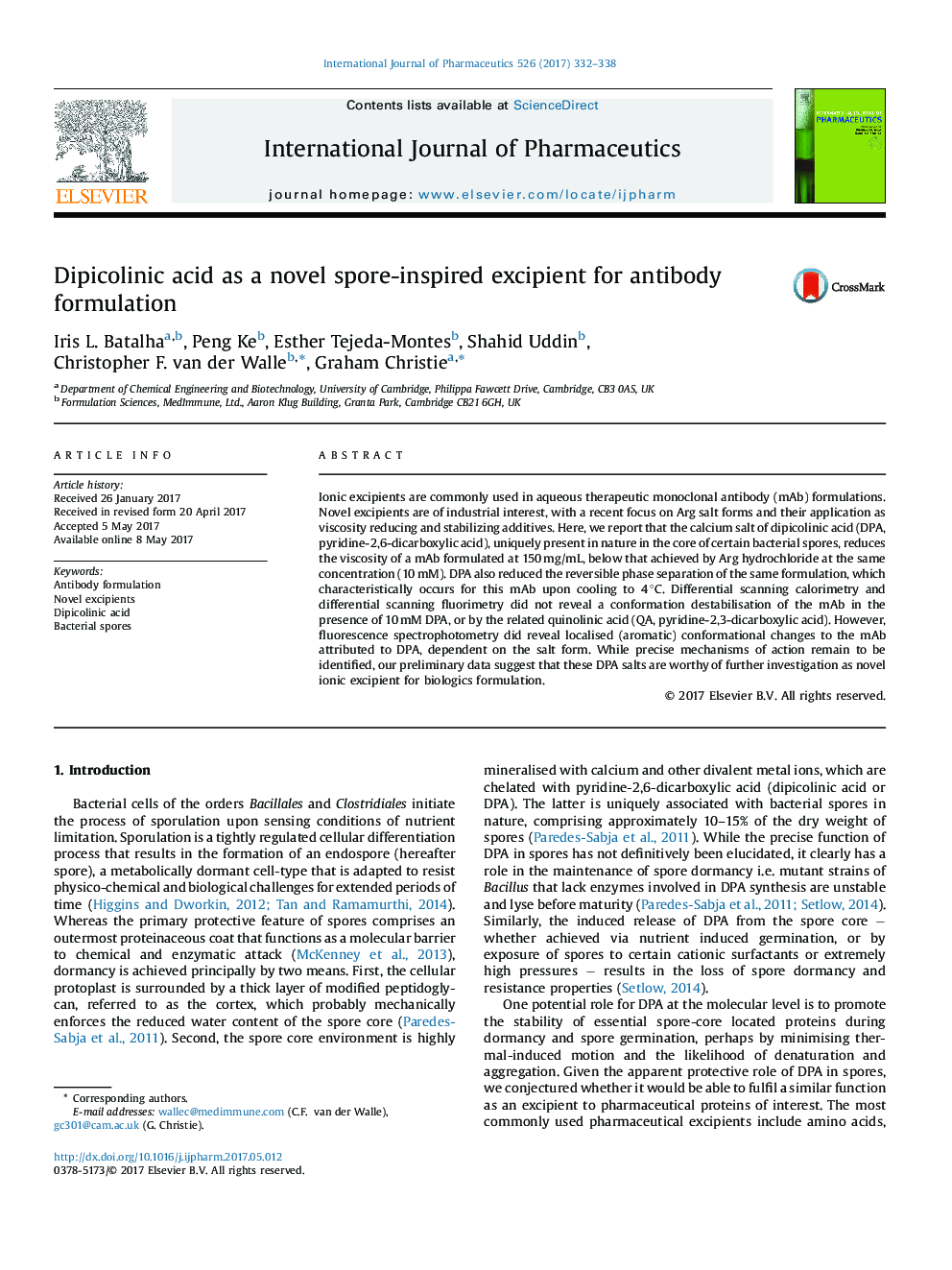| Article ID | Journal | Published Year | Pages | File Type |
|---|---|---|---|---|
| 5550252 | International Journal of Pharmaceutics | 2017 | 7 Pages |
Ionic excipients are commonly used in aqueous therapeutic monoclonal antibody (mAb) formulations. Novel excipients are of industrial interest, with a recent focus on Arg salt forms and their application as viscosity reducing and stabilizing additives. Here, we report that the calcium salt of dipicolinic acid (DPA, pyridine-2,6-dicarboxylic acid), uniquely present in nature in the core of certain bacterial spores, reduces the viscosity of a mAb formulated at 150 mg/mL, below that achieved by Arg hydrochloride at the same concentration (10 mM). DPA also reduced the reversible phase separation of the same formulation, which characteristically occurs for this mAb upon cooling to 4 °C. Differential scanning calorimetry and differential scanning fluorimetry did not reveal a conformation destabilisation of the mAb in the presence of 10 mM DPA, or by the related quinolinic acid (QA, pyridine-2,3-dicarboxylic acid). However, fluorescence spectrophotometry did reveal localised (aromatic) conformational changes to the mAb attributed to DPA, dependent on the salt form. While precise mechanisms of action remain to be identified, our preliminary data suggest that these DPA salts are worthy of further investigation as novel ionic excipient for biologics formulation.
Graphical abstractDownload high-res image (97KB)Download full-size image
